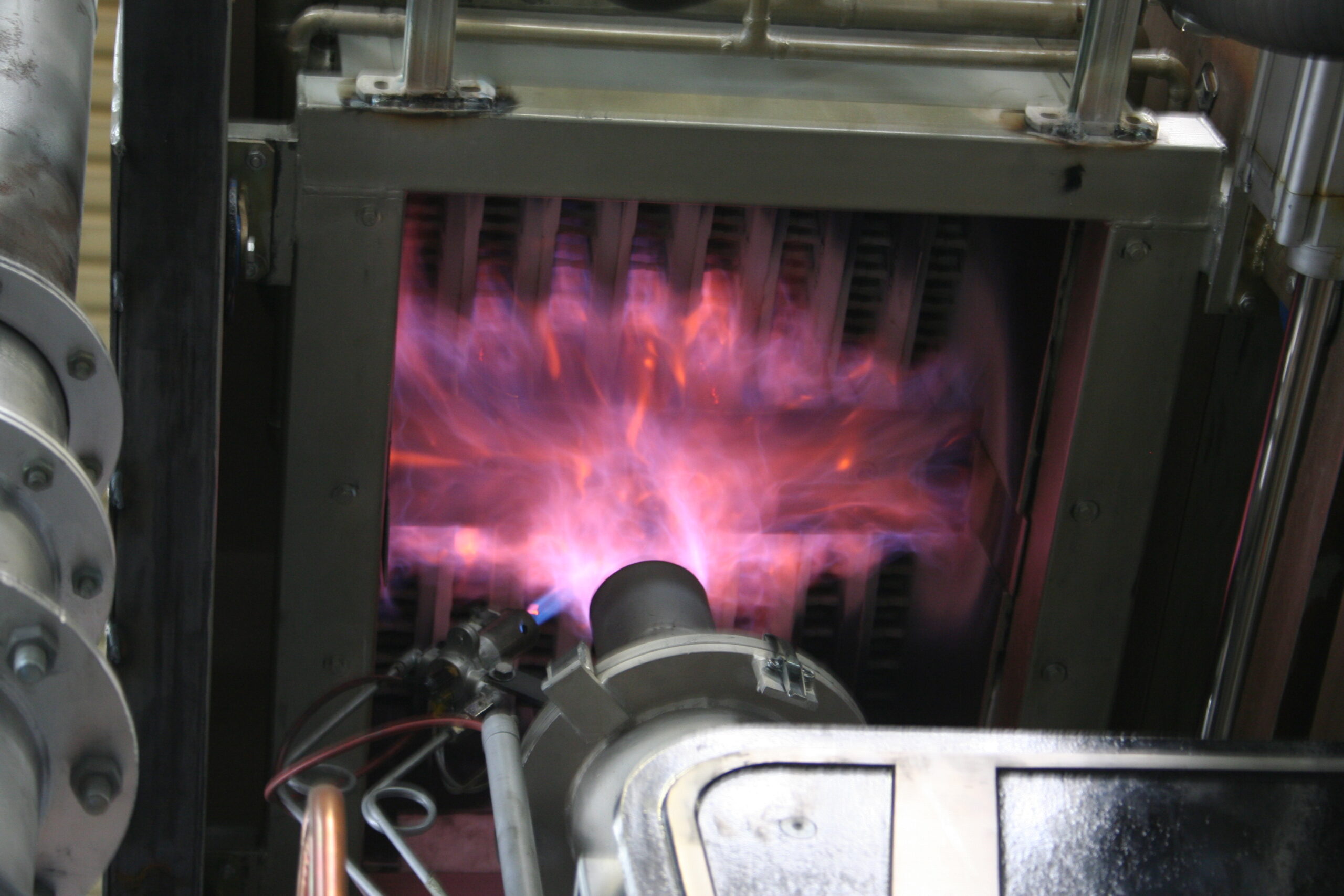Heat treatment furnaces are often operated with inert or shield gases in order to achieve a specific material property of the metal parts. The energy content of the gases is about 2 kWh/m3, which need to be flared acc. to DIN EN 746-3 at the outlet of the heat treatment furnaces.
In the patented recovery system the energy is transferred to a water circulating system and then used to heat water or air. The solution is especially suited to electrical heated washing baths, to remove oil or grease residues that adhere to the threated metal parts during the quench hardening process. The energy for heating up the wash water to about 60 to 80 °C is obtained so directly from the heat treatment process and saves electrical energy.
The system has already proved itself in practice. In most cases the amortisation period is less than one year. The system architecture is simple and low maintenance. The heat recovery system for heat treatment plants is offered in various sizes from 20 kW upwards.
(Source: Runkel GmbH)

Efficient heat recovery from inert gas flares
Kategorien: heat processing | Technik
Autor: Redaktion
Datum: 23. Jul. 2015